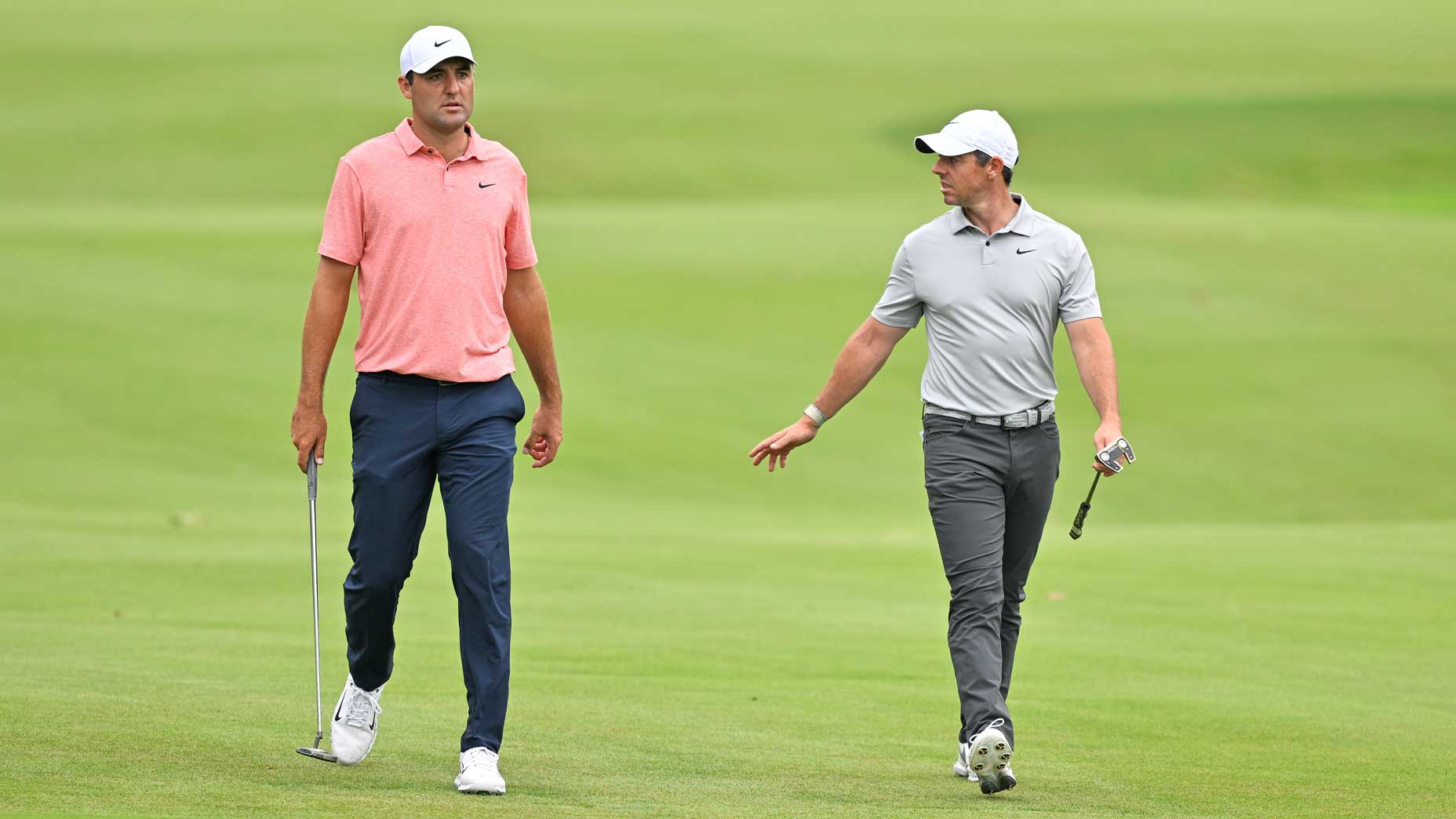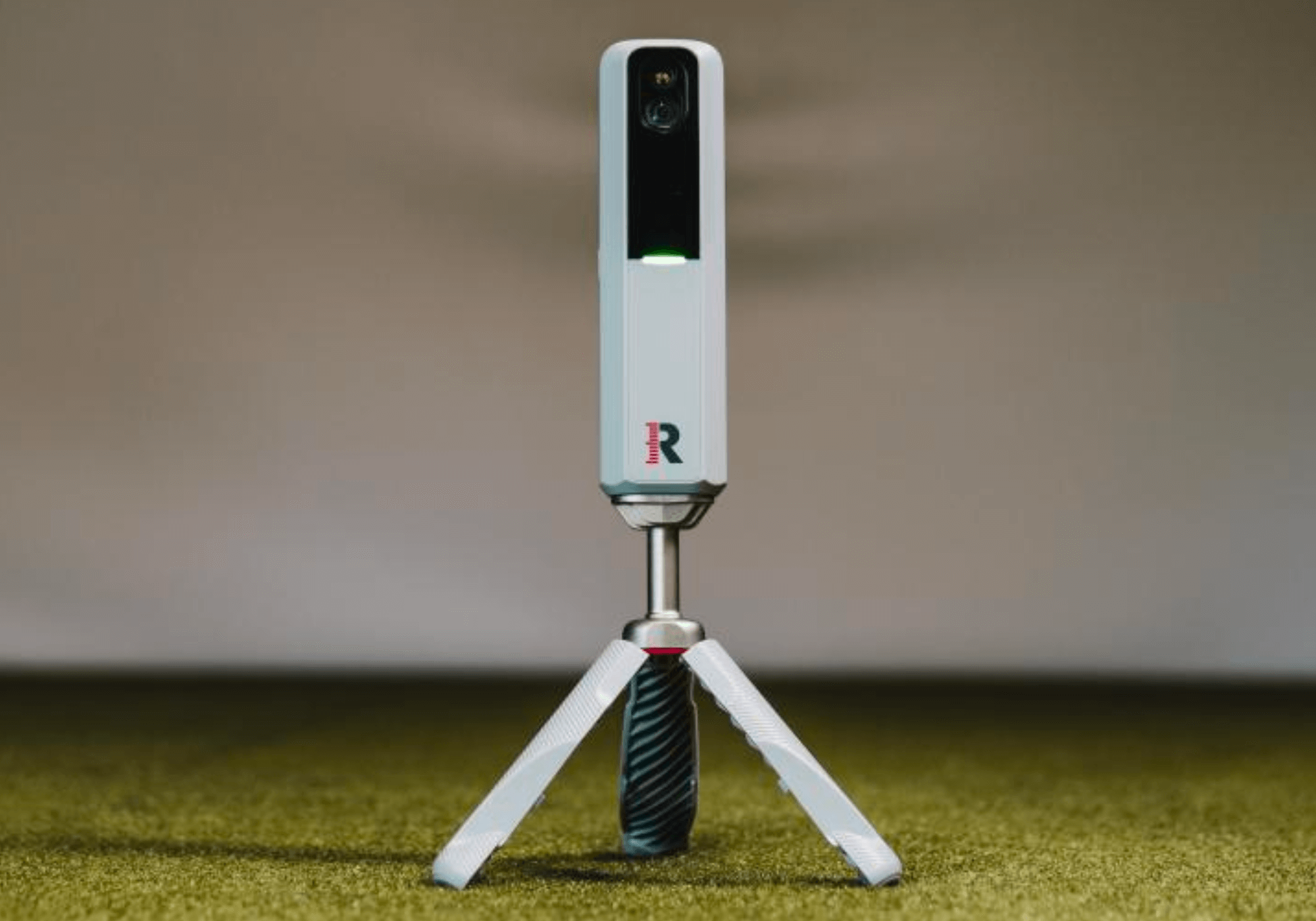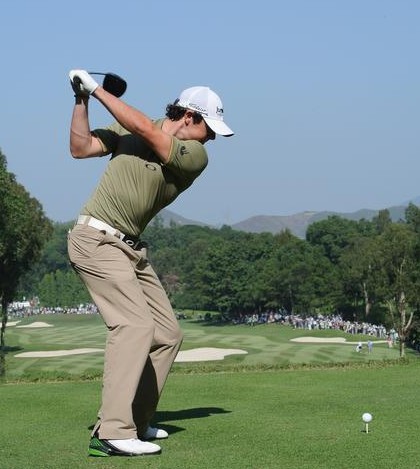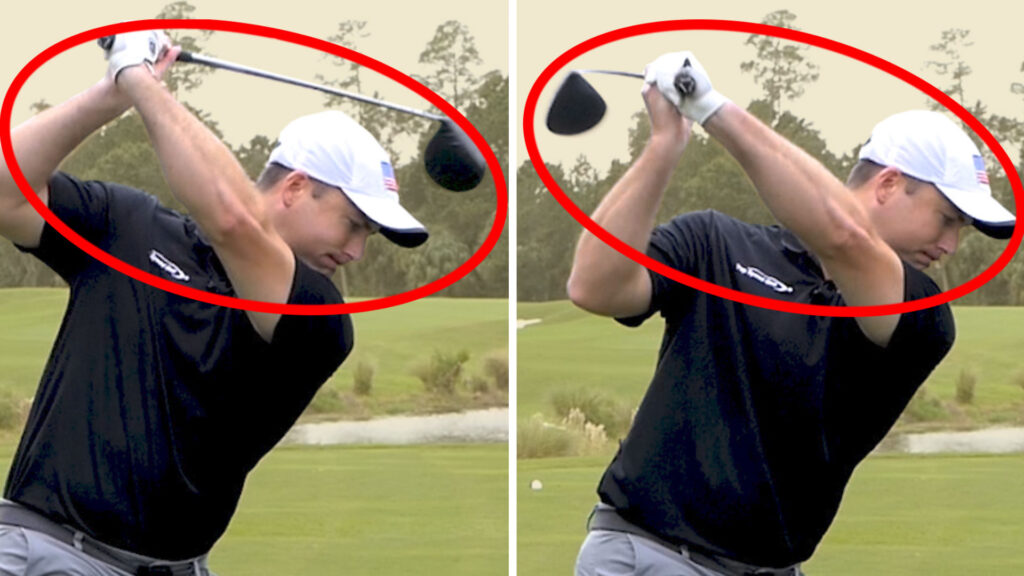Scottie Scheffler and Rory McIlroy at the 2023 Tour Championship, holding putters.
Getty Images
You want Friday night putting talk from the best golfers in the world? We’ve got Friday night putting talk from the best golfers in the world!
Enter our first putter, Rory McIlroy. At last week’s Cognizant Classic, McIlroy led the field in strokes gained off the tee but finished 64th of 68 in strokes gained putting. That added up to a 21st-place result. “A week that could have been,” he said on Sunday evening. That felt about right.
Thursday’s first round at the Arnold Palmer Invitational brought more of the same. He was third in strokes gained off the tee but 66th of 69 putting. He shot 73.
After the round, Golf Channel’s cameras zeroed in on McIlroy on the putting green, where he’d gone to work. Eventually those cameras caught one of their own — NBC Sports analyst Brad Faxon — standing behind him. (Faxon moonlights as McIlroy’s putting advisor.) It was an extended session, lasting an hour or so before McIlroy signed for the kids who’d waited him out and headed off for the night.
It seemed to work.
On Friday, McIlroy led the field in strokes gained off the tee. But get this: he led the field in strokes gained putting, too. His irons and wedges didn’t match that standard, but he managed a respectable round of two-under-par 70 that got him into red figures for the tournament and within shouting distance of the lead.
So what was the secret putting lesson? McIlroy was delightfully candid post-round; he ran reporters through his learnings.
“I didn’t work on much,” he said. That was an intriguing start. “I mean, speed. I felt my speed was just a bit off more than anything.” The greens, McIlroy said, look faster than they actually are. That makes it easy to leave putts short.
But he also acknowledged that his putting stroke has gotten a bit loose. While he’s spoken glowingly about the benefits of a mallet putter (more on this in a bit), things can still go awry.
“With the mallet, because it’s so much easier to start it on line, you do get a little lazy,” he said. So for his post-round session he brought out a blade putter — what he called a “real putter” with a laugh — to work on his stroke. What was he trying to dial in?
“Just starting the ball on line and a good strike,” he said. “Sometimes I can let the putter rise up a little bit too much on the way through and then I can catch the ball more on the equator rather than more level. Like, when I strike a good putt it almost feels like the ball comes out of the top of the face instead of the middle of the face.”
McIlroy added that most of his issues come on his right side, so he focuses on the position of his right arm. “It’s all sort of right-sided stuff,” he said. “Feel like my right shoulder sort of goes down in transition, from back to through. Like, when it gets to the top of the backstroke, my right shoulder feels like it goes down, which then keeps the putter low through impact,” he said.
Why the sketchy putting these past couple tournaments? McIlroy wasn’t sure. He putted fairly well in a win at the Dubai Desert Classic back in January, after all. Perhaps his struggles on the bumpy greens of California were to blame.
“Going over to the West Coast for a couple of events can always — putting on that poa, once you lose a touch of confidence you can start to not feel great with the putter,” he said. “But as I said, it felt much better today.”
Before we move on, let’s review McIlroy’s advice:
1. Don’t change much.
2. Start the ball on line.
3. Focus on proper contact.
4. Keep the putter low through impact.
Shockingly simple, right? That’s worth remembering the next time you spend a Thursday evening on the practice green desperately searching for a solution to your own stroke’s imperfections. Keep it simple.
Let’s get to our second putter, then, because they have a fun connection.
At the Genesis Invitational, McIlroy — who’d finished earlier in the day — joined the broadcast booth to call some of the tournament’s action down the stretch. During that appearance he mentioned that he’d like to see Scottie Scheffler try out a mallet putter.
“I’d love to see Scottie try a mallet. But selfishly, for me, Scottie does everything else so well…” he said.
McIlroy was right. Scheffler does everything well — except for putting. Check this out:
It was pretty funny, then, when Scheffler showed up at Bay Hill this week with a mallet putter.
So how’d it go? On Thursday Scheffler was just 55th in the field with the putter, losing a stroke and a half on the greens. But on Friday afternoon he made a bomb on No. 15, canning a 45-footer for birdie. He two-putted the par-5 16th for birdie and then made a 17-footer for birdie at No. 17, boosting him into a tie for the lead. That’s where he finished the day; Scheffler’s score of 7-under par has him in a six-way share of the lead heading to the weekend.
After his round, Scheffler was asked about the mallet putter and about McIlroy’s comments and whether the latter had inspired the former.
“My coach Randy joked about that at home, because he had already thought about it,” Scheffler said. While he didn’t exactly give McIlroy credit for the change, he made it clear he’d taken no offense to the suggestion, either. “I think Rory just had said it in a way in which he used the blade for a long time and then he switched to a mallet, and that’s something that works for him. I think, as a lot of good players out here know, something that works for Rory may not work for me, and something that works for me may not work for Rory. I did hear that he said that, and it was just kind of funny timing.”
He was proud of his process, he said. Despite missing short putts early in each of his first two rounds, he returned to his fundamentals.
“Sticking to my process and doing a really good job of not letting things bother me. That’s kind of been my main goal this week, not trying to be perfect, just go out there and hit solid putts and see what happens.”
What was different Friday compared to Thursday? Scheffler shrugged.
“I think they just went in today,” he said. There’s a lesson there, too.
We’ll see how they roll over the weekend.




